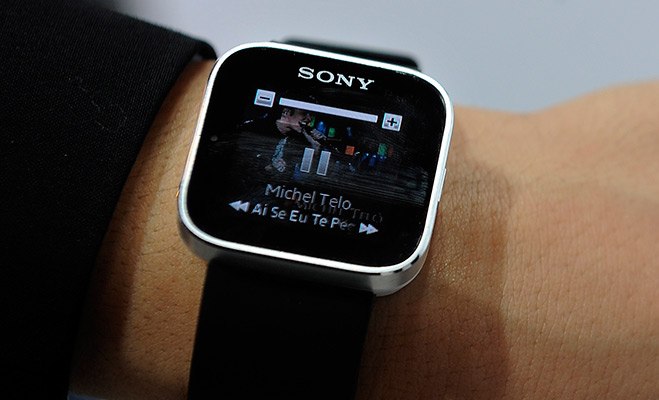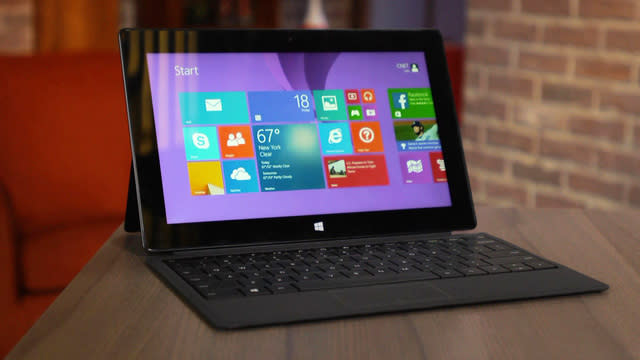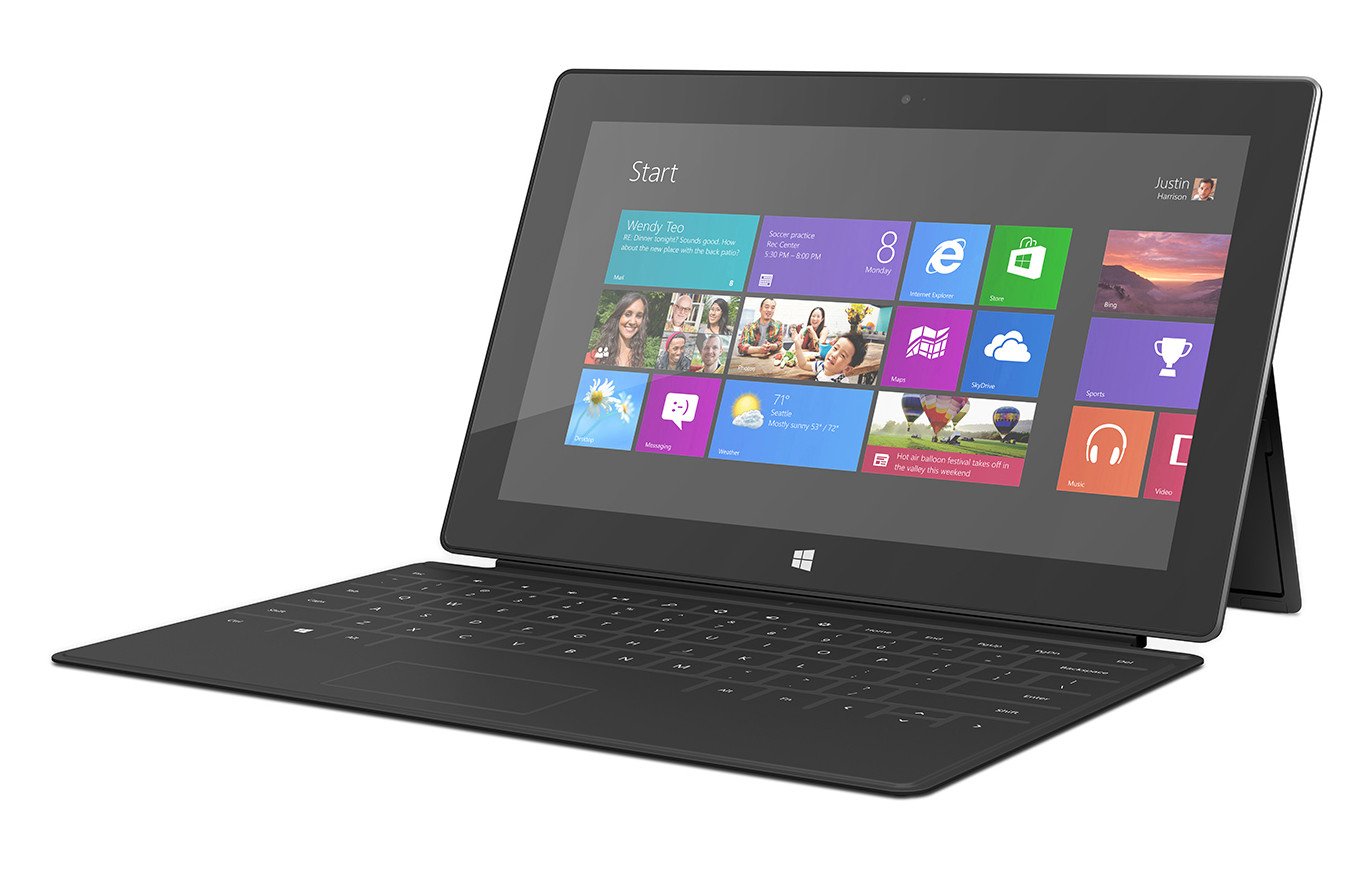So, HTC have launched their follow-up to the highly-acclaimed HTC One by
launching the HTC One M8. In the words of HTC ‘The Best Got Better’, but
exactly how true is that? I went hands on with the M8 over the course of a week
to find out.
What’s new?
The externals
It's now a 5" HD-screened phone,
which is certainly on the larger side. It shows off the screen beautifully, but
in the same breath it can take two hands to operate at times. It’s bigger (by
0.3”) and noticeable in appearance but not in feel. The screen is even more
shown-off than the HTC One and every comment from peers mirrors this. It's
stunning.
 I'll look at the appearance a bit more later in this review, but HTC
have stuck largely with the shell of the M7 with a few tweaks to the front chassis
by removing the off-screen buttons and rounding-off the edges. In short, the
most beautiful phone on the market has been given a six-pack and a tan!
I'll look at the appearance a bit more later in this review, but HTC
have stuck largely with the shell of the M7 with a few tweaks to the front chassis
by removing the off-screen buttons and rounding-off the edges. In short, the
most beautiful phone on the market has been given a six-pack and a tan!
Under the bonnet
HTC have made a few upgrades in this department. The processor has jumped to
2.3GHz from the 1.7GHz on the One M7. It has also been boosted to 2GB RAM and
now includes the new highly-rated Snapdragon 801 processor. Believe me, this
thing will deal with anything you throw at it with the utmost of ease.
Gesture functions whilst the phone
is sleeping:
A big change from HTC is the inclusion of a multi-gesture wake-up. This can be
done from a double-tap and swipes left, right, up and down. All produce
different results
I found the swipe to be a little redundant to be honest but this was
because of the force of habit to simply swipe to unlock – not open to a new
destination. A bit of customisation though, alongside training your mind to
head straight to different areas of your phone, will make this feature quite
handy.
A great addition was the double-tap to wake.
I’ve used this all the time as it feels like a natural movement and with a
phone that's on the larger-side, not having to switch on from the top makes a
difference. Another great addition is the quick photo gesture when the phone is
in landscape mode and the user presses volume down.
Camera Functions
HTC have added a plethora of new
post-edit options for the camera, and these all focus around the brand new,
headline-grabbing ‘Duo Camera’ that brings a depth-sensor to a mobile phone for
the first time. This depth sensor allows for one of the camera’s new headline
features – ‘U-Focus’ which allows the user to post-focus an image to the
foreground or background.
In addition to this, HTC have added ‘3D Dimension Plus’, which provides
a slightly pointless ability to make a image 3D. It’s good fun, and one of
those things you show-off once, but there really isn’t any use for it.
I look at the Duo Camera as primed for developers to take it to a
different level. HTC have started the job – the hardware is great but the
result is probably a little gimmicky, but gives 3D developers, for example, a
chance to use this and we could see some wonderful results.
HTC have also added a new camera navigation that’s nice and simple. The
quick choice between six options is a welcome upgrade to the unnecessarily
convoluted M7 layout:
What's Improved?
Appearance
Let's not forget that the HTC One M7 was widely acclaimed for its appearance.
It was regularly seen alongside titles of "Best Looking Phone". So
how do you improve on that? At the launch event, HTC Head of Design, Daniel
Hundt, said that the aim for this phone was to appear premium, yet approachable.
Well it’s certainly premium. The beautiful brushed metal finish is spectacular
and isn’t as slippy as expected – partly due to the lovely weight of the phone.
90% of the body now consists of the metal body, compared to 70% on the M7, and
this allows for a lovely feel that sits comfortably in the hand as the sides
have been further curved.

Battery
Battery-life is up 40% according to HTC and after testing it's certainly
improved, if not to quite that extent. The One M8 will still need charging
every night at moderate-high use but that is to be expected in the modern-day
smartphone market. HTC have improved on their power-saving mode however. The
new 'Extreme Power Saving Mode' (inventive progression of name) only allows five essential functions on the phone (phone, SMS, mail, calendar, and
calculator) to operate, which gives an impressive 30 hours of standby time in
return for just 10% battery. This has been a lifesaver so far - really useful.
Camera
In addition to the new camera features,
there have been upgrades on last year as well. Firstly, the autofocus and
shutterspeed is now lightning quick, and more effective. This is aided by the
depth sensor and the Ultrapixel technology that allows further light into the
sensor. The main improvement has been in low-light, where all smartphones have
struggled in recent years. Don’t get me wrong, it’s not perfect, but it’s
markedly improved.
I’ve seen a bit of negativity about the camera in strong light, like blazing
sunshine, but this wasn’t my experience. The camera operated superbly. HTC have
stuck with the Ultrapixel technology (this allows more light into the sensor
and provides more stability to an image) that seems to make sense on a
technical level but hasn’t translated to consumers.
Any complaints on the camera for
the M7 were misplaced as it really is one of the best on the market – the M8
only improves on that opinion.
BlinkFeed
BlinkFeed has improved. It now possesses customisable themes and allows for more
content feeds such as Instagram. HTC have also opened it up to developers,
which is exciting. BlinkFeed offers that short sharp snacking of content, and
this works but can still improve. The open API will only help this. However, if
BlinkFeed isn’t for you, then don’t worry – you can get rid of it.
HTC Sense 6
The smaller updates have followed on
with HTC’s next version of their Sense UI. It’s now a bit cleaner, simpler,
flatter and has a brighter appearance. This is only a good thing for HTC as
they’ve moved more in line with the stock Android layout.
What's Returned?
MicroSD is back! A superb move from HTC who have listened to public
opinion and included a hugely popular feature. This allows the storage of the
M8 to be boosted from either 16GB/32GB to 128GB. This is something that I
really missed on the One, and the One X, so I'm delighted to see it return.
This isn't the only feature to come back. The multitasking windows button is
apparent once more after it was replaced by a double-tap on the home button in
the One M7. The buttons have now been moved onto the screen.
What's Disappointing?
Always Listening
I'm disappointed to see the 'always listening' Google Now feature not included
in HTC devices. It's a real plus point to the Moto X. That being said, it takes
a split-second to flick on Google Now and say 'Ok Google' to get rolling.
Nano Sim
Personally, I think the use of a Nano sim is frustrating. I know it doesn’t
take a moment to sort out but I’m not that sure why HTC decided to switch to a
Nano Sim when their previous phones have been consistently Micro-Sim. There
appears to be no discernable benefit other than size – and let’s be honest,
that’s not at a premium.
The Gallery
The Gallery is becoming a bit confusing. In HTC’s desire to make the Gallery a
professional entity, they’ve focused more upon Zoe (which I’ve never been
convinced by) and less on the simple folders that users want. In reality, I
believe users just want to access a gallery of their photos easily – HTC seem
keen to take consumers to a place they don’t seem to want to be.
Name
Name: Why? The HTC One M8? Just not a fan. No.
Headphone Jack
Finally (and this is definitely a case of personal preference) I'm not a fan of
the headphone jack now appearing on the bottom. It works well on the top of the
M7 - why change it? It just feels unintuitive.
So where does the phone stand in the
grand-scheme of things?
When I looked at the rumours before the launch, I'm not afraid to admit
that I was a little disappointed. Each year we tech geeks look for something
revolutionary - game changing. It just didn't feel like the M8 was that phone,
and to be fair, it's not. However, when you look at it in context, its
difficult to criticise.
The biggest compliment that can be
paid to the HTC One M8 is that it is better than its younger brother. The M7
was one hell of a phone. Without doubt the best phone on the market, and
without the M8 it still would be. HTC have succeeded in refining the phone and
taking it to the next level. That takes some doing, and they should be
commended for achieving it. The M8 is not without fault - but it is as close to
perfection as you will find in the mobile market.
So, what’re you waiting for? It went on sale straight away.











 At the beginning of MWC, Microsoft announced that LG, Huawei, Lenovo (who have recently bought Motorola) and ZTE were to become partners of Windows Phone. This is a strong move from Microsoft - and a showing of Windows 8 intent from some big name manufacturers. Possibly the biggest signing for Microsoft will be Huawei, who will be looking for a strong 2014 - and that may be where Microsoft will be most pleased. With Nokia showing a bit of love for Android, Microsoft needed to make sure that attention didn't stray far from Windows 8.
At the beginning of MWC, Microsoft announced that LG, Huawei, Lenovo (who have recently bought Motorola) and ZTE were to become partners of Windows Phone. This is a strong move from Microsoft - and a showing of Windows 8 intent from some big name manufacturers. Possibly the biggest signing for Microsoft will be Huawei, who will be looking for a strong 2014 - and that may be where Microsoft will be most pleased. With Nokia showing a bit of love for Android, Microsoft needed to make sure that attention didn't stray far from Windows 8.





































